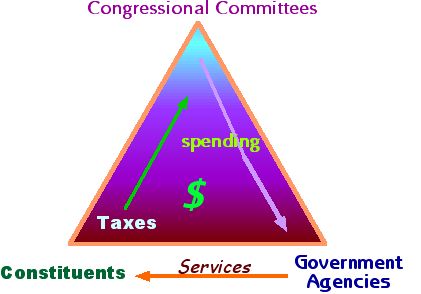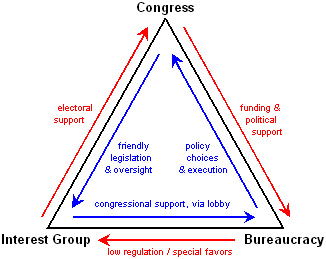 Institutions
Institutions 

Who is John Dean and why does he say such things?
"There are, as I outline in the book, something like 11 inchoate scandals that are available right now to really become a serious part of this administration. The worst problem, though, is the problem that Senator Kennedy just addressed. Nobody died during Watergate. None of the Watergate -- so-called Watergate "abuses of power" resulted in the loss of a life. And we're in a situation now where the abuse of power has cost a lot of lives."
Government Accountability Office (GAO) is known as "the investigative arm of Congress"
The Bush and Cheney Administration is the most secretive and least responsible executive authority in the nation's history in that it denies access to executive agency oversight agencies such as the GAO and the Congressional oversight Committees.
Impeachment
Worse Than Watergate: Former Nixon Counsel John Dean Says Bush Should Be Impeached
Dean is charging in a book Worse Than Watergate: The Secret Presidency of George W. Bush that the crimes of President Bush are worse than his previous boss and are grounds for impeachment.
Energy policy
"Big campaign money buys special access. . . "
p. 76.
National Energy Policy Development Group, January 2001.

". . . chaired by his vice president."
Contact
"Waxman and Dingell made a simple request for information about the composition of Cheney's energy group and its activities in developing a national energy policy."
p. 76.
"Cheney blatantly misstated the nature of the Waxman-Dingell and GAO requests."
p. 78.
"Bush told White House reporters: 'First of all, I'm not going to let Congress erode the power of the Executive Branch, I have a duty to protect the Executive Branch from legislative encroachment. I mean, for example, when the GAO demands documents from us, we're not to give them to them. These were privileged conversations."
pp. 179-180.
The need to protect deliberative processes in the Executive Branch by invoking Executive Privilege, commentary on:
William Safire (Nixon speech writer and conservative Republican)
"when it comes to federal officials, the argument that only that only secrecy assures candor is specious. Presidents record and blab; speechwriters remember and tell it all; most advisers want their 'private' advice too become known. When in a memoir, I protected a colleague by not mentioning his unpopular advice in an Oval office meeting, he objected furiously to having been left out of history."
Law Professor Gerald Wetlaufer:
"'So far as I have been able to determine,' those who claim such chilling effects "have never offered any kind of formal empirical evidence in support of this assertion [inhibiting advice if there is not strict secrecy]."
John Dean, Worse than Watergate, pp. 184-85.
"Secrecy:
- is undemocratic
- threatens liberty
- Precluded public accountability
- alienates to create subjective distance between -- the secret keepers and one from who the secret is kept.
- Negatively affects character
- is dangerous. . . all deceit does rely on keeping something secret.
- encourages incompetence, hampers the exercise of rational choice, by preventing people from adequately understanding a threatening situation.
- an indispensable element in scandal."
pp. 185-188.
President Bush
"while questions surrounding Bush's business dealings do not loom as large as Cheney's, they are far more serious than the Clintons' financial affairs,"
p. 189.
Vice-President Cheney's previous work with Halliburton:
"He knew about the financial problems with pending asbestos claims, but failed to report this information."
p. 190.
J. Siry
15 November 2007


